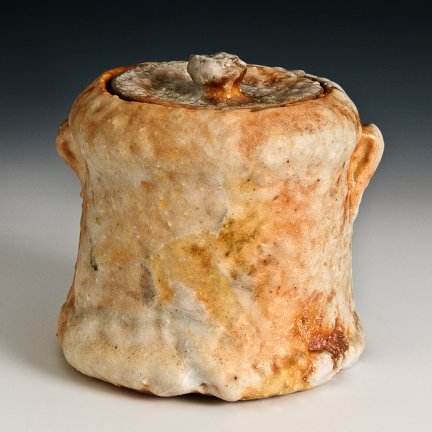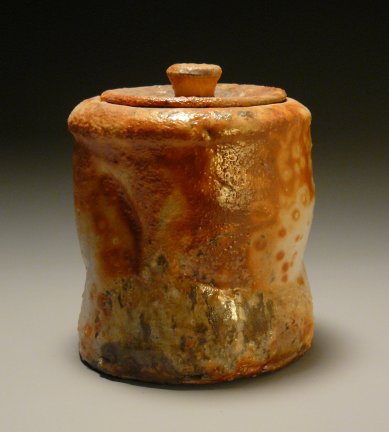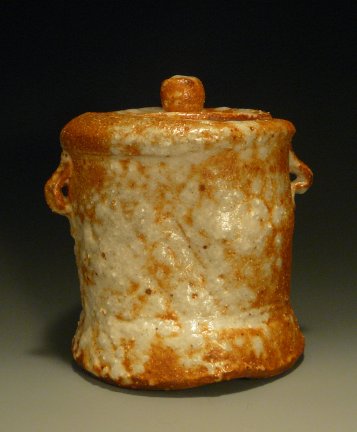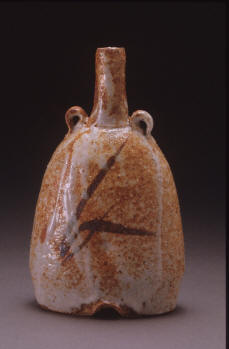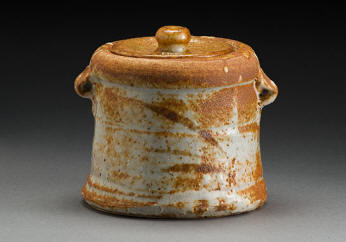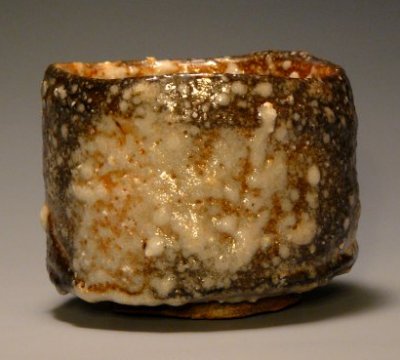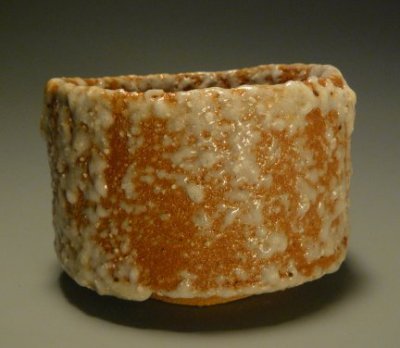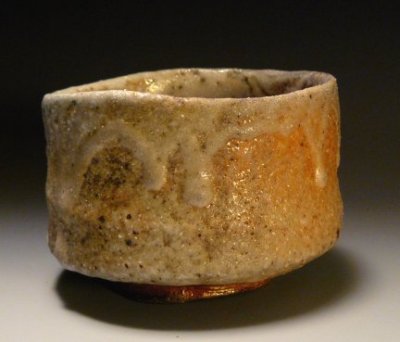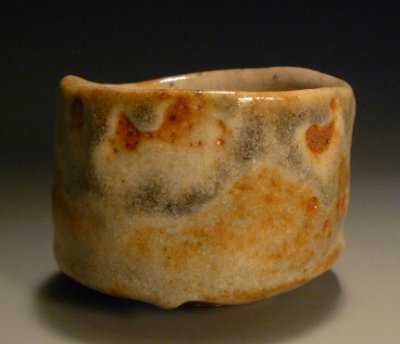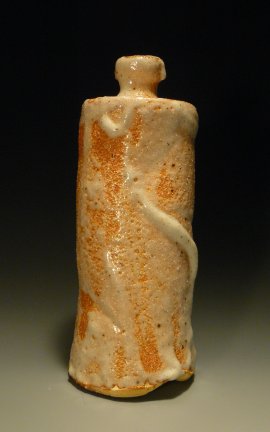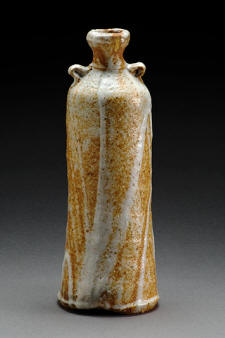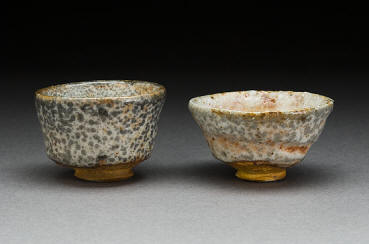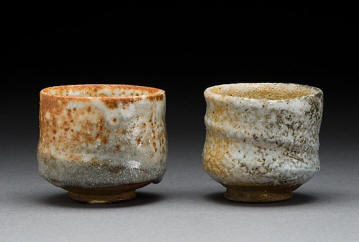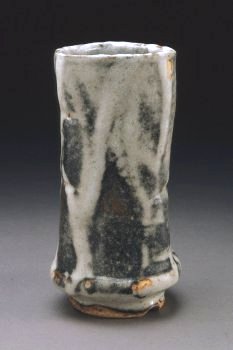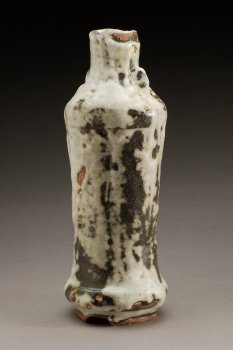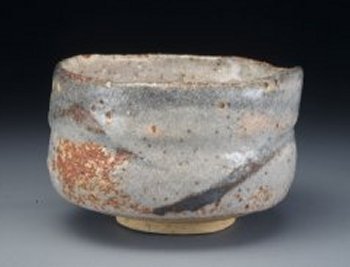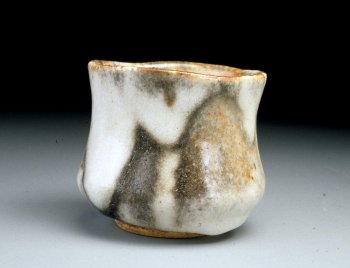| |
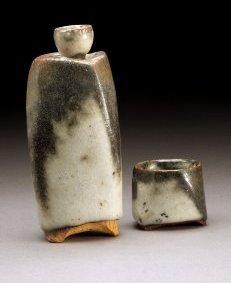
These pots were developed as the result of a Grant that I
received in 2004 from the
North Carolina Arts Council.
My proposal was to
replicate Japanese shino clays and glazes using local materials. These
pots were fired in a special gas kiln modeled after those used in
Japan (see
Kilns). They were fired for 100 hours and then cooled for 7 days. The
glaze is primarily crushed feldspar mined in North Carolina and the clay
ingredients come from Tennessee and Kentucky. Upon receiving the
grant, I visited well-known Japanese shino potters in the Mino/Seto area
to learn about their kilns and firing schedules. I brought back samples
of their clays and glazes which were
analyzed for chemical, mineral, and particle size properties. From
these analyses I was able to formulate several clays and glazes for
testing using local materials. The feldspar used in the glazes was
crushed to the proper particle size using a stamp mill made from scrap
metals. The glazing with feldspar is difficult due to the large
particle sizes - like glazing with wet sand. Therefore, only
simple shapes can be glazed effectively. In Japan, shinos are used
primarily on tea ceremony pieces and sake bottles and cups. These
shino pots are highly treasured in Japan.
My friend, Stephen Driver, wrote an article about my work in this field
that appeared in the December 2016 Issue of Ceramics Monthly.
See article
|
|
